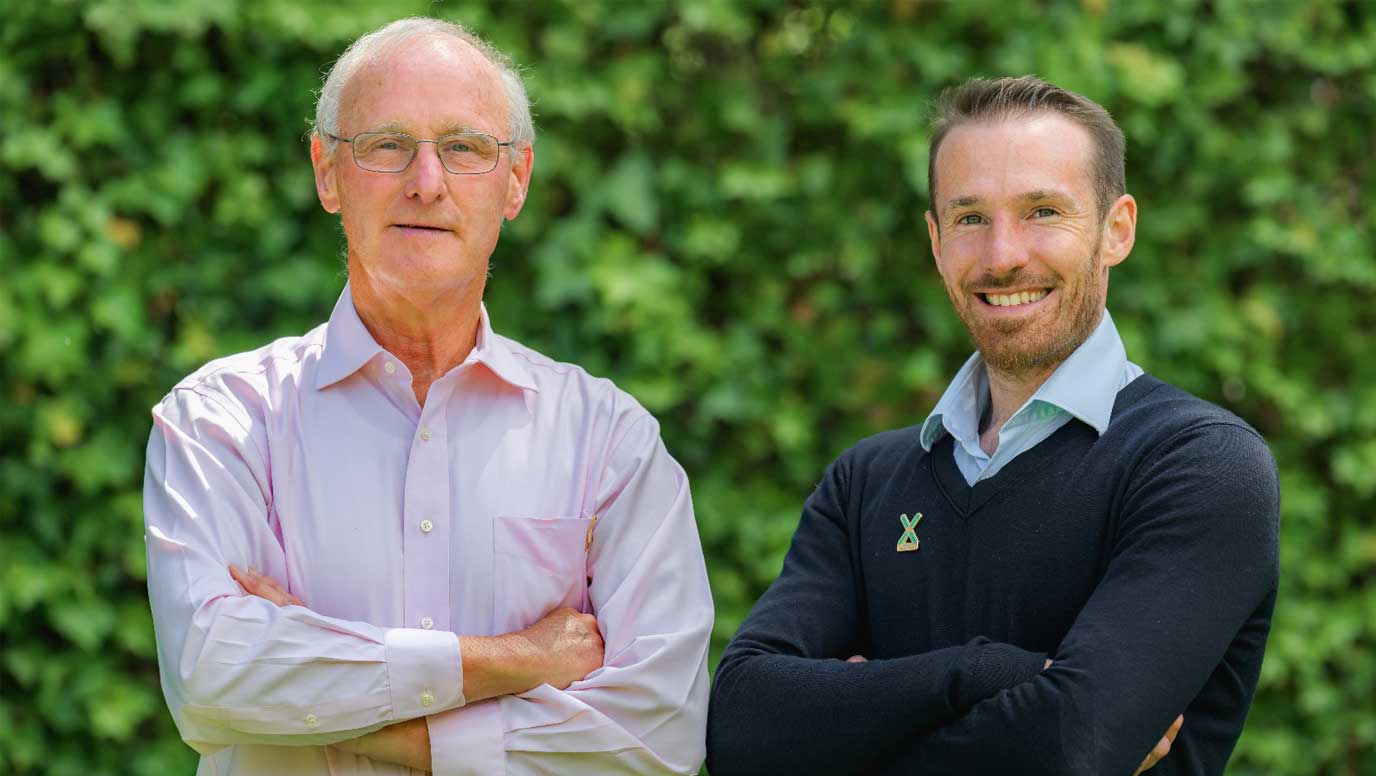History beckons as Healx doses first rare cancer patient with AI-created drug

AI for drug discovery has been a pipe dream until now. Not any more.
The AI-enabled, clinical-stage biotech dedicated to rare diseases says the first patient has been dosed in INSPIRE-NF1, a Phase 2 trial evaluating the safety and efficacy of HLX-1502 – an oral investigational therapy – in patients with neurofibromatosis type 1 (NF1).
NF1 is a debilitating rare genetic disorder that causes tumours to form along nerves, often manifesting in childhood. It affects around one in 2,500 individuals worldwide and can lead to severe complications, including pain, disfigurement, and malignancies.
Despite its impact, treatment options remain limited, with many patients facing invasive surgeries or therapies with severe side effects.
Healx co-founder Tim Guilliams tells Business Weekly that the company, working with the FDA, has recruited a further 20 patients in the US for other dosages under the trial. And he revealed the real meaning of the potential breakthrough: “This is much more than a company milestone – it represents a new hope for the NF1 community.
“AI for drug discovery as a concept is amazing in its own right and the fact we can use it to create more new medicines is super exciting.”
Guilliams hopes that the success of this trial is just the beginning for the use of AI in drug discovery. He said: “A lot of people remain sceptical about AI in general as a lot of companies add the initials without necessarily justifying the capability of the way they use the technology.
“Our success to date is a differentiator and will hopefully lead to more lives being saved though serious and effective deployment of artificial intelligence. It is one thing to talk about capability and another thing to prove it: We are dealing with human beings and real lives here so AI deployment has to be proven and effective. The possibilities we have opened up are so exciting for medicine and for people.
“For too long, patients have had limited treatment options that come with serious trade-offs. HLX-1502 is being evaluated as a potential treatment for NF1, with the goal of providing an alternative to existing MEK inhibitors, which have known side effects.
“If successful, this could mark the beginning of a paradigm shift in NF1 care – one that not only improves patient lives today but also paves the way toward a future where patients no longer have to choose between treatment effectiveness and quality of life.”
HLX-1502 was discovered using Healx’s proprietary AI platform, which accelerates the identification of potential drug candidates. The therapy has received Fast Track, Orphan Drug, and Rare Pediatric Disease designations from the U.S. Food and Drug Administration, underscoring its potential significance for the NF1 community.
“This trial represents an important step in determining the potential of HLX-1502 as a treatment option for patients,” said Simone Manso, head of neurofibromatosis therapy development at Healx.
“There are no treatments for many NF1 symptoms; current treatments for NF1 plexiform neurofibromas, such as surgery and MEK inhibitors, are helpful but come with their own set of trade-offs, in terms of lasting complications and side effects.
“There is a need for new treatments for the NF1 community that balance effectiveness and safety. Evaluating HLX-1502 in this context is a key focus of our research efforts. We are grateful for the support from the Children’s Tumor Foundation, a vital partner in this journey, and to the Neurofibromatosis Clinical Trials Consortium for making this clinical trial a reality.”
Partnering for Patient Impact
“We are excited about the launch of this trial and what it could mean for those affected by NF1 worldwide,” said Michael Fisher, director of the NF Program and chief of the Neuro-Oncology Section at the Children’s Hospital of Philadelphia, and the group chair of the NF1 Clinical Trials Consortium.
“Our consortium, consisting of 24 clinical centres across the United States and Australia, is committed to pushing NF research forward and finding new therapies for individuals with neurofibromatosis and schwannomatosis. Healx’s innovative approach to treatment discovery gives us renewed hope for continued meaningful progress.”
The NF1 Clinical Trials Consortium has an Operations Center based at the University of Alabama at Birmingham (UAB), led by Girish Dhall and Karen Cole-Plourde, and a Data Coordinating Center at CHOP led by Richard Aplenc.
INSPIRE-NF1 is a Phase 2, open-label, single-arm study evaluating the safety and efficacy of HLX-1502 in NF1 patients with plexiform neurofibromas (PNs).
These aggressive tumours can lead to severe complications, including functional impairments and malignant transformation. The trial is enrolling approximately 20 patients in the US focusing on key outcome measures such as tumour response rate, safety and tolerability as well as pharmacokinetics.
Serial life science entrepreneur and investor Jonathan Milner, who is Chairman of Healx, says he looks “forward to continuing to support the team as they transform the future of rare disease treatment.”
He said: “Healx has been at the forefront of pioneering AI-driven drug discovery for rare diseases and I have been a proud supporter since the very beginning.
“The launch of this Phase 2 trial marks a crucial milestone – not just for Healx, but for the NF1 community, which has long been in need of safer, more effective treatments. HLX-1502 represents the potential for a real breakthrough and I have been honoured to take on the role of chairman at such a pivotal moment in the company’s journey.”
There are over 10,000 rare diseases affecting 400 million people worldwide, yet only five per cent have an approved treatment, Healx is on a mission to change that.
Founded in Cambridge by biochemical engineer and entrepreneur Tim Guilliams and David Brown – co-inventor of Viagra and former Global Head of Drug Discovery at Roche, Healx has raised around $125 million to date.


